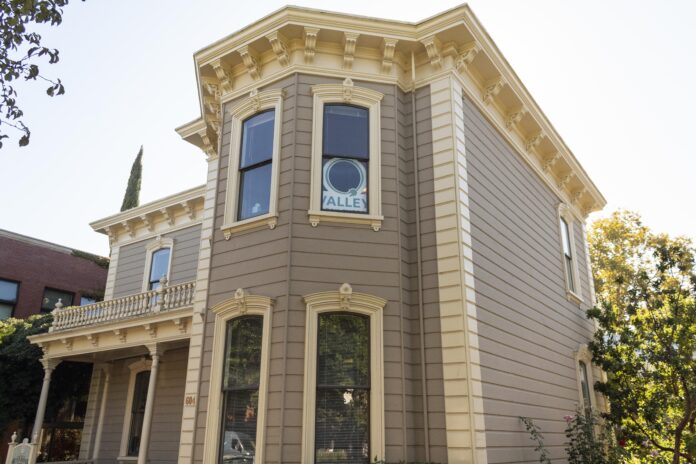After Gov. Newsom’s shelter-in-place order, conservation measures for energy are encouraged
Valley Clean Energy, the local electricity provider for Davis, donated $2,500 to the Yolo Food Bank in an effort to mitigate the effects of the coronavirus pandemic in Yolo County. The energy provider also ensured that clean energy will remain available during this time, following PG&E’s moratorium on electrical shut-offs due to nonpayment.
On its Facebook page, Valley Clean Energy announced the donation and encouraged others to support Yolo Food Bank.
“In times like these, coming together to support our community is more important than ever,” the post read. “That’s why VCE is thrilled to be able to contribute to Yolo Food Bank during this time of need. We implore you to do the same.”
Jim Parks, the director of Customer Care and Marketing at Valley Clean Energy, explained that the donation is intended to help reduce the increased costs the Yolo Food Bank will likely face during the pandemic.
“I expect the impacts on the foodbank will be significant starting now and going into the next couple months, as more people are realizing the impacts of not having an income,” Parks said. “They’re going to start relying on the food bank for more services.”
In a press release, Valley Clean Energy also announced that its greener energy options will remain available during California’s shelter-in-place order.
“VCE sources the cleaner energy you use and feeds it into the grid,” the statement read. “We will continue to provide our customers with the same clean energy through this pandemic — nothing concerning that service will change.”
The energy provider added that they are asking “staff to self-isolate and work from home” and that they are working in “partnership with PG&E, to deliver the cleaner power we source for you,” according to the press release.
These statements followed Gov. Gavin Newsom’s shelter-in-place order, announced on March 19, requiring all Californians to remain at home except when performing essential services. Parks explained that the shutdown has not influenced Valley Clean Energy’s main purpose of acquiring energy.
“We’re still procuring the generation, and making sure that it’s put into the transmission system, and PG&E is doing a good job of delivering the electricity like they always have,” Parks said. “On some level you could say things haven’t changed with regard to getting the electricity, but what has changed is everyone is working from home except for essential personnel needed in control rooms, and for maintaining the grid.”
Only five days before the statewide shutdown, PG&E declared a voluntary moratorium on electrical shutoff for nonpayment. In a press release, company officials ensured that electricity service will not stop for owners of homes and businesses who are unable to pay their bills on time, due to the extreme circumstances of the coronavirus pandemic.
“This suspension will apply to both residential and commercial customers and will remain in effect until further notice,” the statement read. “To further support customers who may be impacted by the pandemic, PG&E will offer its most flexible pay plans to customers who indicate either an impact or hardship as a result of COVID-19.”
With limitations on shutoffs, the overall impact of the coronavirus pandemic on electricity rates remains uncertain. Parks pointed out, however, that the neighboring Sacramento Municipal Utility District (SMUD) has seen an overall decrease in electricity usage, which could be from the lack of commercial electricity usage.
“SMUD is experiencing an 8% decrease, so I think we’re probably going to see something similar to that,” Parks said. “A lot of the businesses are really down in their electricity use but home usage is going up, so it offsets somewhat.”
Parks added that despite being home for most of the day, residents can reduce their electricity bill by being more conscious about the energy that they are using.
“I would focus on conservation measures, like making sure lights are off when you’re not in the room,” Parks said. “If you’re on a time-of-use rate, look at the rates and try to use electricity during the cheaper periods, and turn off appliances when they’re not in use.”
Written by: Madeleine Payne — city@theaggie.org




